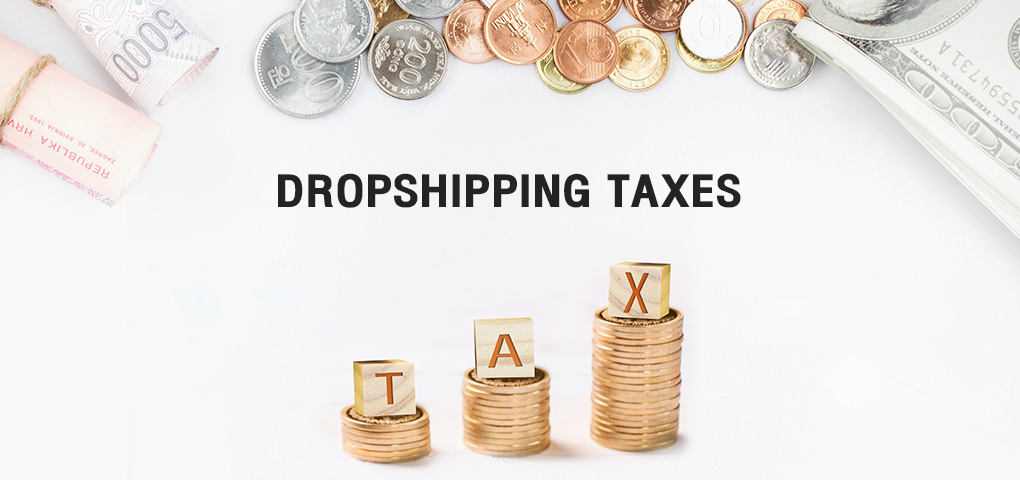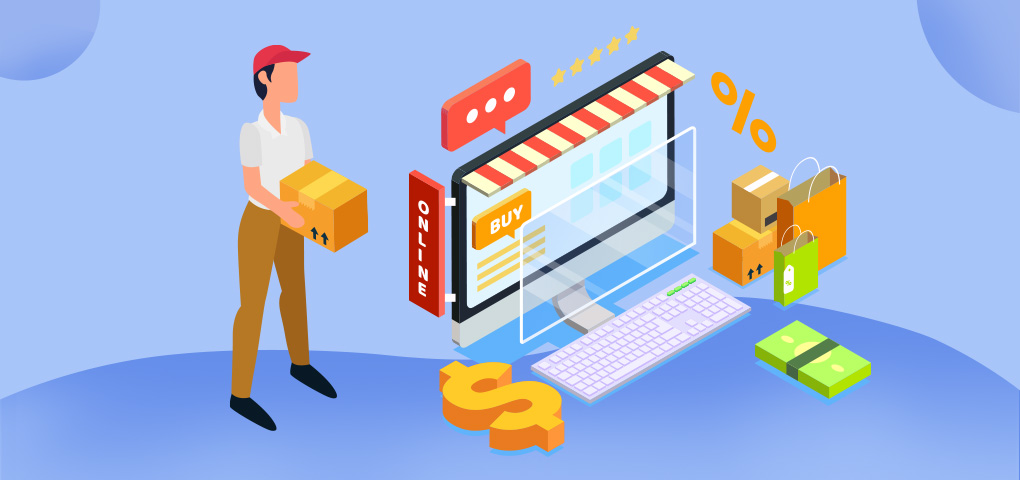There is this charm about the dropshipping business model. This is it. You may start some online business without putting in so much money from the start. Also, you won't need to have a ton of overhead costs such as renting a warehouse. However, there may be a complication however relating to taxes. Don't worry, SaleYee Blog always tells you how to address the most concerned issues related to dropshipping.
Have you ever been asked, "Do you pay tax on dropshipping?" During dropshipping, two essential purchases arise. The retailer buys from the supplier. The consumer also buys from the retailer. But should there be taxes for dropshipping? And if there happens to be, how would those who are responsible to pay? This post considers important things to note regarding these tax issues.
Dropshipping Taxes
Most dropshipping taxes are often consumption taxes. The forms of these consumption taxes include Value-Added Tax (VAT), Sales Tax and GST (Goods and Service Tax).
Consumption taxes are applicable to the purchase of dropshipping products and every country of the world chooses that which applies to them. Whichever one any country chooses; one thing resonates all through. The final consumer needs to pay the tax as a result of the fact that they are those who definitely consume the product.
In addition, dropshipping paying taxes also involves dropshipping income tax which occurs when you pay taxes on gains that your store makes annually. However, only a few nations take Dropshipping Import Tax. For instance, dropshipping taxes in Europe don't take dropshipping import tax from most EU-member countries.
Dropshipping Taxes in Europe
You may want to know how sales tax works for dropshipping. Are you sure if you're required to pay VAT to your dropshipping suppliers? Where you have a European VAT-registered enterprise, and the person supplying you is likewise in the European Union, then you can manage VAT on B2B (Business to Business) buying via the reverse-charge apparatus. Where your enterprise is sited away from the European Union (EU), but the person supplying you is within the EU, then you most likely do not need to pay VAT.
What about charging sales tax from those of your customers? Do you really need to do that? If your enterprise is found in the European Union then you may need to charge VAT on every EU sale. However, the rate of the tax has to do with the selling price you fix each year. There are actually "distance sales starting points," which determines if you would take the tax rate of your country's or the country of your customers.
What about a situation where your business is located outside the European Union? What would you do? If this is the case, then you need to sign up for EU VAT. You may afterward start charging VAT. Where your goods are also brought into the country outside the EU, then on delivery, the consumer might eventually have to pay some VAT and import duties. Unanticipated expenses like such only produce poor reviews on your items.
For you to have great customer experience and achieve a continual sales tax practice all over EU member nations we advise you to consider and heed the rules of distance selling in the European Union.
Dropshipping and Tax Exemptions
Here is good news for dropshippers - items that are for resale are commonly eligible for an exemption to sales tax. Under circumstances where the product that was sold is confirmed to be exempted, sales tax will not be taken from any of the suppliers or dropshipper.
Nevertheless, that brings forward another problem. To succeed as a certificate of exemption, a dropshipper needs to apply and offer documentation satisfactory by the state where the certificate would be used. An applicant who is registered may make an application for a resale certificate which is recognized in two states or more. However, some states yet demand a dropshipper to get a connection in that state and get a state registration number to be qualified for exemption. In such circumstances, the dropshipper may collect sales taxes from the buyer's resident in that state.
The certificate needs to be sent to the supplier to show that dropshipper pays no sales tax. Even with that, the supplier may opt to turn it down depending on the appropriate state tax laws where the supplier has some connection. In such situations, the supplier may yet charge the dropshippers some sales tax.
It is equally important that you're cautious at the time you're signing up for a resale certificate as it may spark tax charges in certain states. In some situations, it is more worthwhile to shield your bases by charging a sales tax on your purchasers each time and document those sales in the tax returns records. Quite unluckily, this may bring about missed sales. It may result in you making payments to wrong states and/or paying double taxes.
Therefore, it's instructive to prudently assess the appropriate tax laws in every state to which you transport stuff. It is also a great thought to keep a neatly-filed system with your supplier relating tax matters. You do this in order to ensure you're on the same wavelength regarding every business deal.
How to Pay Dropshipping Taxes? Who Collects Them?
Just like you see a job, there is the expectation from you to pay income tax on the gains of your enterprise. This would then be paid to the government of the country you reside and they are often paid every year.
Online sellers are expected to collect and make payments of dropshipping taxes in any state that they bear some connection to. In the event that you're a seller without the state, you do not need to pay such taxes not to talk about collecting them. This occurs in as much as you are not under any of the prerequisites that we have highlighted above.
Conclusion
All being well, this article has assisted you in knowing how to take care of your dropshipping tax issues. It is important you really know them in order to avert troubles with the authorities.




